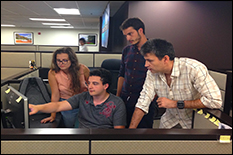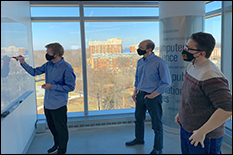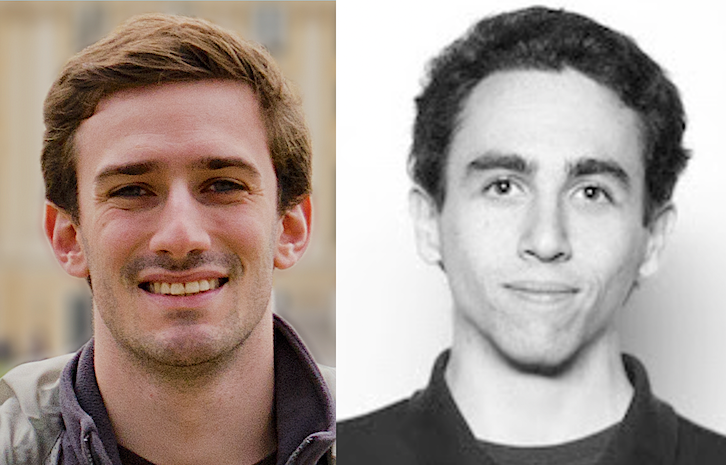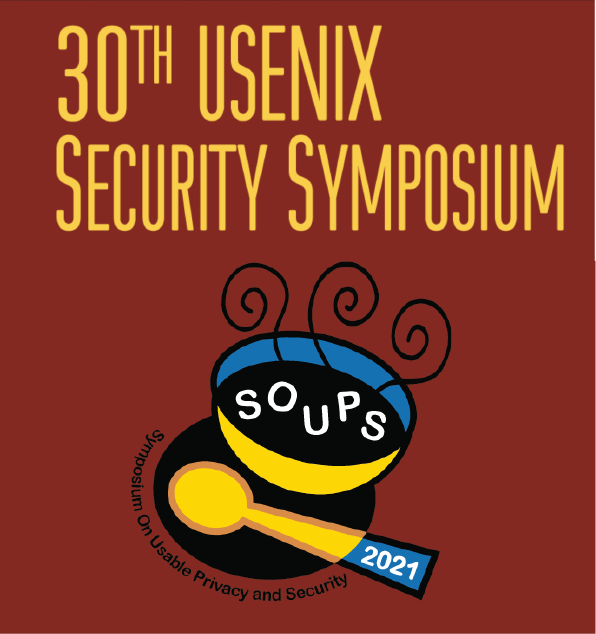News Story
Dumitras Spearheads Internship Program Targeting European Students
Published September 5, 2017

As cybersecurity continues to evolve and become more critical to government and industry alike, it is important to have the best and brightest minds working to solve its complex problems and develop the best strategies to protect national security and economic interests.
In an effort to cultivate top researchers to fill those ranks, Tudor Dumitras (on right in photo), an assistant professor of electrical and computer engineering in the Maryland Cybersecurity Center (MC2), has developed a summer internship program designed to attract talented undergraduate students to MC2 from underrepresented areas overseas—specifically, Eastern Europe.
Dumitras, who hails from Romania, says that soon after coming to the University of Maryland in 2013, he noticed that MC2 was receiving very few advanced degree applications from Europe.
“While the Maryland Cybersecurity Center is a leading research center, we are still relatively new and not as well-known as we’d like to be,” he says. “I would like top undergraduates from around the world to think of us as one of their most attractive options for research and graduate studies in cybersecurity.”
About three years ago, Dumitras began reaching out to his academic contacts abroad, asking them to let their students know about possible internship opportunities at Maryland.
Last summer, Dumitras hosted four interns from Romania and Turkey. This year, he expanded his efforts to include seven students from overseas—from Romania, Turkey, Albania and the Czech Republic—and one from the United States.
“These internships allow students to work on a research project in security and to learn both advanced security concepts and the process of doing research,” Dumitras says. “They can then decide if a research career is a good match for their interests. The internship also offers undergraduates hands-on experience working on a research project, which is an important factor for admission in a Ph.D. program.”
The internship is mutually beneficial to MC2 as well, Dumitras says, allowing him and other faculty to assess the visiting students’ aptitude for conducting research, which is helpful should they decide to apply for graduate school at UMD.
Dumitras provides the interns with a stipend and pays for their airfare. As each intern contributes to a topic under a larger research project in MC2, they are also supported via the funding received for those projects.
Miraç Başaran, a junior majoring in computer engineering at Bilkent University in Turkey, says he was attracted to the internship because of the research reputation of University of Maryland, and more specifically, of the ongoing research in MC2.
Başaran is working with Charalampos (Babis) Papamanthou, an assistant professor of electrical and computer engineering in MC2, on improving the security of searchable encryption. As a result of their project, they developed two novel searchable encryption schemes and submitted a research paper to the 2018 IEEE European Symposium on Security and Privacy.
“These internships allow students to work on a research project in security and to learn both advanced security concepts and the process of doing research."
Tudor Dumitras
“This internship has provided me with the opportunity to experience the research environment and I now have a sense of what it is like to work in academia,” Başaran says. “I also learned more about cryptography and how to properly write a scientific paper.”
Maria Petrișor, who recently earned an undergraduate degree in software engineering from Politehnica University of Timișoara, Romania, says her “passion” for cybersecurity—specifically for malware analysis, network security and traffic analysis—drew her to the internship.
“I discovered papers published by MC2 researchers while working on my diploma thesis and realized my cybersecurity interests were similar,” she says. “I wished to enhance my knowledge by completing this internship and learning from the best.”
In her downtime, Petrișor says she has had fun exploring the Washington, D.C. area.
“I enjoy the openness of people here and their willingness to help,” she says. “I have visited the National Museum of Natural History, the Lincoln Memorial and the White House, all of which were really interesting.”
Octavian Suciu, currently a third-year doctoral student in computer science at Maryland, previously completed Dumitras’s internship program, having learned about the opportunity through a research talk Dumitras gave at the Technical University of Cluj-Napoca, Romania.
“Having no background in cybersecurity, the internship allowed me to quickly get a grasp of the field through close supervision and the chance to take a grad-level class,” Suciu says.
Suciu calls the internship an “incredible opportunity” for someone deciding if they want to attend graduate school.
“It allows one to work on cutting edge security problems, while being surrounded by a friendly group of professors and grad students,” he says. “The close interactions and vast expertise in MC2 provides interns with a broad set of prospective problems to work on, focusing on directions that fully exploit their interests and skill set.”
Suciu also points out that the computational resources and technical support provided by the University of Maryland Institute for Advanced Computer Studies (UMIACS) tech staff have been valuable assets that enable the interns to work efficiently.
—Story by Melissa Brachfeld
About MC2: The Maryland Cybersecurity Center is jointly supported by the College of Computer, Mathematical, and Natural Sciences and the A. James Clark School of Engineering. It is one of a number of labs and centers in UMIACS.







